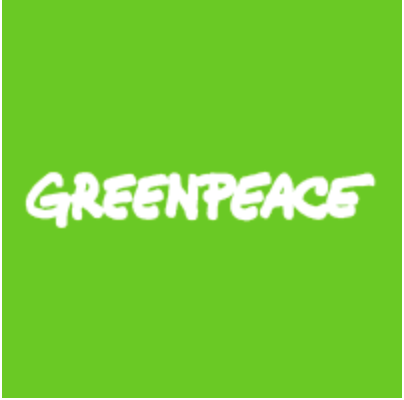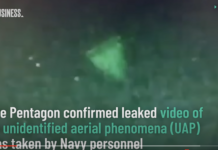A new proposal to build a waste to energy incinerator in Waimate to burn 350,000 tonnes of plastic, toxic sludge, nappies and other waste, is facing strong opposition from Greenpeace Aotearoa.
“There is nothing right about this nightmarish proposal. It would be a disaster for public health, for the climate and for efforts to reduce waste,” says Greenpeace Aotearoa plastics campaigner Juressa Lee.
A similar proposal in Sydney recently met strong community opposition and has been rejected. Greenpeace Aotearoa is calling on the Waimate community and Council to do the same.
“If the Waimate community voices its opposition, I have no doubt that this abhorrent house of cards will fall. It doesn’t stack up environmentally, morally or economically.
“The incineration process would pose a serious threat to public health in the Waimate community. Similar plants elsewhere have been shown to be more polluting than coal, emitting dioxins, mercury, lead, nitrogen oxide and more.
“Carbon emissions would be created from burning the waste feedstock and from the fuel required to incinerate waste, as well as from the transporting of waste from all over the South Island to the plant in Waimate.
“On top of all the pollution issues, the whole waste to energy incineration concept undermines the very pressing efforts to reduce waste in Aotearoa because it requires rubbish to operate, thus incentivising waste production.
“At a time when the world is awash with plastic pollution, we need to be focused on shifting to a circular economy where there is no waste, not falling for false solutions like waste to energy incineration or more recycling schemes.
Greenpeace Aotearoa has been lukewarm about the Government’s recent promise to phase out some single-use plastics, pointing out that the plan fails to tackle the worst culprits; single-use plastic bottles.
A Greenpeace petition calling for single-use plastic bottles has been signed by over 85,000 people.
“As we face the existential risk of the climate crisis, we must not allow the oil industry its plastic lifeline. Single-use plastic is itself a major driver of climate change and is harmful to human health, even when it’s recycled. A new report, released this week by Greenpeace USA reveals that the big players in the consumer goods sector like Coca-Cola, Pepsi, are driving the expansion of plastic production. And by doing so, are threatening the global climate and the health and safety of communities around the world.
Notes:
Follow this link to see a list of health impacts from waste incineration
Fact sheet on waste to energy incineration plants





What the fuck? The only emissions is water vapour. You gweenies are fucked.
Nope Greenpeace is right it is crazy to burn chemicals. We have polluted our waters with plastic, now the air!!! F-off and start mandating that all packaging has to be biodegradable or BIG taxes to the PRODUCER of the waste!
It’s like polluters in NZ, when they don’t get their own way, then think of an other polluting way to solve the question. The answer is, don’t allow the unnecessary pollutants to be produced in the first place for someone else profits, and make them responsible for the cost of it’s disposal and the emissions and carbon from that emissions (or if too large, jail).
We have plenty of ability to use solar power, but somehow the same old voices say if we can’t use coal, use nuclear or gas instead! There is a better, cheaper and easier way!!!!!
Too many industry voices control policy in NZ and the government just goes what they tell them to do which is why NZ productivity is low and our pollution problem worsening.
Northland’s plastic waste that is non recyclable is being incinerated at Portland cement works. European standards burner been there for around 12 years generates electricity. Recycling is a farce and it has failed. I agree plastics manufacturers should be taxed into oblivion. All single use plastics banned as of now. Tiwai point needs to be repurposed as a waste incinerating plant ( isolated very windy ) and a carbon capture plant no power needed. Of course this will never happen we are governed by idiots!
Recycling failed in NZ. Not in other countries who did not use neoliberal recycling private owned principals. AKA Switzerland recycles 50% not 5% like our OZ owed recyclers.
Like climate change and smoking, industry faced with almost certain change, is dragging it’s heels, and doing their best to fund and promote change to a slightly better solution rather than the best practise solution.
Best solution is stop producing all this plastic packaging and if it is produced then the manufacturer should pay for it’s disposal. Instantly pollution and many other desirable outcomes will come out of it. Other countries and states are already doing it.
NZ would get an economic boost as we already have good ability to change to biodegradable packaging.
It is win, win.
Good points savenz
Has Shona repurposing Tiwai Point got a good use for it? For the things that can’t be got rid of elsewhere?
Can we have more glass – returnable bottles. I wash my milk bottles out and they go back for further use. Why can’t kids go round picking up bottles for cash as they used to? Is our government just too afraid of insisting on anything to the frowning faces of Big Business? Would it upset the NZ bottled water regime that is such a nice little earner for somebody?
Comments are closed.